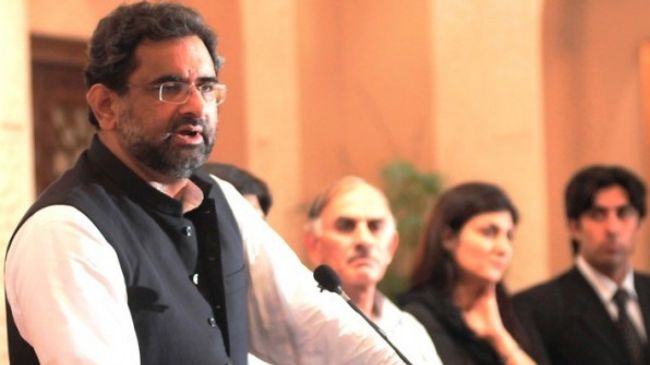KARACHI: Pakistan expects the first cargo of liquefied natural gas (LNG) for its new terminal to be delivered on Friday, Prime Minister Shahid Khaqan Abbasi said on Monday, outlining huge growth plans for Pakistan’s use of LNG.
The South Asian nation has become a hot destination for global energy giants, with producers such as Exxon and traders like Vitol seeking partners to build terminals after Abbasi re-oriented Pakistan’s energy policy towards gas.
Pakistan’s second LNG terminal in Karachi, delayed by several months, will import 4.5 million tonnes per year of LNG and was set up by a consortium including Pakistan GasPort, BW Group, Fauji Oil Terminal and Distribution Company Limited (FOTCO), and commodities trader Trafigura.
“This terminal we will have the first cargo on the 24th (of November),” Abbasi said at the terminal’s inauguration.
GasPort also plan to build another LNG terminal in Pakistan, but is facing stiff competition from several other consortia battling to establish a foothold in one of the fastest-growing LNG markets in the world.
Engro Corp, which built Pakistan’s first LNG terminal in 2015, also near Karachi, is working out plans with Royal Dutch Shell, Fatima Group and trading house Gunvor for a terminal with capacity of 4.5 million tonnes per year.
Abbasi said on top of the first two terminals already built, there are up to five others in the works.
“The industry sees the demand, it sees the need, and it is coming in to fulfil that need,” he said.
Abbasi, Pakistan’s former petroleum minister who pushed for Pakistan to build LNG infrastructure, said people did not believe him last year when he said that Pakistan would be a market of 30 million tonnes per year of LNG in five years.
“People were very sceptical,” he said. “Now people believe in the story and you will see that Pakistan will exceed 30 million tonnes within the next three years.”
Abbasi’s ruling Pakistan Muslim League-Nawaz (PML-N) party has been pushing to end energy shortages in time for the next general election, likely in August 2018.
Abbasi said that while the new GasPort terminal will plug the current gas deficit, there is huge latent demand in Pakistan, with some factories still using captive plants for power generation. Abbasi’s government also wants furnace oil plants to be converted for gas use.
Abbasi added that Sindh province also wants to build two 1,200-megawatt (MW) gas power plants, following in the footsteps of the Punjab province, which is in the process of commissioning four large gas power plants with capacity of nearly 5,000 MW in total.




